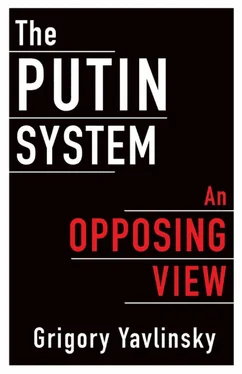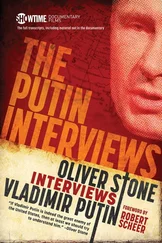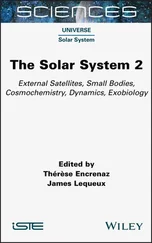Not that this political postmodernism is a uniquely Russian phenomenon. It is burgeoning in plain sight everywhere, even in the most politically “advanced” nations and societies. Yet it arguably takes the most grotesque forms in Russia, due to the distinctive characteristics of the peripheral mind-set of Russia’s elite. And this, I believe, is one of its fundamental differences from the totalitarian systems of the past century. Neither the Nazi regime in Germany nor the Soviet system in Russia were grotesque or postmodern. Each of them was earnest in its attempts to impose upon the entire world its own consistent vision of the gist of social relationships, in its own ways. In Nazi Germany, these relationships were reduced to ethnicity and race, while in Soviet ideology they were determined by socioeconomic class. Each system generated a set of functional institutions that were tasked with putting their respective vision into practice.
Moreover, their efforts in this direction were systematic and on a grand scale. And essentially these systems were bound to end as they did, because in the past century the entire world lived and operated within real-life rather than postmodern frames of reference. Thus, one of them, the Nazi regime, was physically beaten as a result of its aggression in trying to expand beyond the confines of Germany. And, in the 1980s, the Soviet system, which was also quite dangerous, was compelled by internal reasons to drastically alter the course of development that was inherent to it.
The situation with Russia’s current political system is different. It is grotesque because it feeds off its own past without creating anything new, except for stereotypes intended for mass consumption and slogans devoid of substantive content. Russia’s present-day peripheral capitalism is rooted in the Soviet legacy, in combination with the so-called reforms of the 1990s, which did not create any of the institutions necessary for contemporary life. Neither the rule of law as such nor a comprehensive legal system nor a genuine right to private property ownership emerged during this period. All of this and many other items that were of vital necessity for Russia were supplanted with fakes—fake political competition, fake elections, fake political parties, fake parliament, fake law and order, and so on.
But real life abhors a power vacuum. And this vacuum was filled with powerful, real-life institutions that emerged in the place of those that were missing, such as corruption, relations outside of the legal framework and based on implicit “understandings,” the cult of the strongman, the Kremlin’s “manual control” over routine operations of the government, and the like. Russia certainly has institutions in their classical sense, as elements of the system of governance and self-regulation of society. But the thrust of these institutions is demodernizing, leading to Russia’s irreversible backsliding vis-à-vis the developed world, as it becomes ever more old-fashioned, as well as to the decay and ultimately the breakdown of Russian society. In other words, Russia’s present-day peripheral authoritarianism is not a “transitional” one but rather is headed toward a dead end of demodernization. Most importantly, its built-in characteristics—first and foremost the lack of change at the top of the power hierarchy and the absence of alternatives to the ruling group—deprive it of the internal tools and the driving forces required for self-adjustment to realities and for the pursuit of responses to external challenges.
Therefore, I agree with those who believe that this regime is doomed, that it will not be able to find appropriate forms and ways to adjust to realities—unless, of course, these realities themselves are altered in ways that would be catastrophic for the world. If the world succeeds in identifying a path toward sustainable growth in peace and security, and if it avoids sinking into economic chaos and military conflicts, then the new generation of Russia’s political class—those who are now in their twenties and thirties—will not be able to preserve and maintain Russia’s political system in its current shape without exposing the country to the threat of collapse and destruction.
The risk of such a turn of events is very real. Russia’s present political system has already produced some tragic outcomes by putting the country on the brink of a full-scale bloody war. The system is again spinning in the vicious circle whereby its propaganda stokes the fears of an external threat and thereby actually becomes a self-fulfilling prophecy by generating or strengthening these threats. Meanwhile, its overkill in terms of military buildup contributes to the decay of the foundations of Russia’s economy and thus does not strengthen but actually reduces Russia’s practical capabilities to withstand domestic and foreign threats to its security. Thus, the tragic farce is gradually morphing into an actual tragedy for the country and its society.
To sum up, the system of peripheral authoritarianism in Russia does not simply demonstrate its incapacity to accomplish Russia’s foremost task in the twenty-first century, which is to close the gap between Russia and the developed world. In broader terms, it also threatens the very existence of the country in its present shape. It makes Russia an easy prey for all kinds of extremists, political plunderers, and organized crime groups that may transform the state into an empty shell, unable to perform even its most basic functions. What looms on the horizon under such a scenario is anybody’s guess.
Is there a way out of this ongoing tragic farce, for Russia to move instead in the direction of modernization and development? This remains an open question, but I believe we must try to find the answer.
AFTERWORD
2018 and the Imperative for Change
About four years have passed since the first edition of this book was written and first published in Russian.
Looking back, I can see that its main ideas are still valid and actual, despite changes in Russian life and the political system. Some of the judgments I made back then may look too cautious in light of the realities of 2018; some, on the contrary, may seem premature. But on the whole the situation seems to be progressing (or maybe “regressing” would be a better word) roughly along the lines described in this book. The Russian political system is increasingly developing all the symptoms and features of an anti-mainstream, retrograde authoritarianism that is indifferent to the long-term consequences of its rule, such as stumbling economic growth, outflow of intellect and capital, waste of valuable resources, burgeoning corruption, the oppressive atmosphere of militaristic and xenophobic propaganda, and so on.
Nor have I changed my mind about the reasons why this system has evolved over the years of postcommunist “transition” and has survived in spite of worsening overall conditions. I still believe that the specific type of capitalism that resulted from flawed and unsuccessful attempts to remold the Soviet economy after the system of arbitrary centralized planning collapsed in the late 1980s gradually developed a political system to match. This specific type of capitalism rests upon a rather simple economy based on the development and export of natural resources, the domination of large public and quasi-private corporations—managed by government-appointed managers and proxy owners dependent on the goodwill of the highest authorities—and on the capability of the top bureaucracy to extract and distribute various types of rent income resulting from administrative and direct control over major resources. For such a model, autocratic rule seems to be the only political solution, and that is exactly what happened to postcommunist Russia. In the 1990s and 2000s, the state transitioned from bogus competitive democracy to mature autocracy with unconstrained power for the supreme leader to command all levels and areas of government and to distribute privileges among various layers of bureaucracy.
Читать дальше












